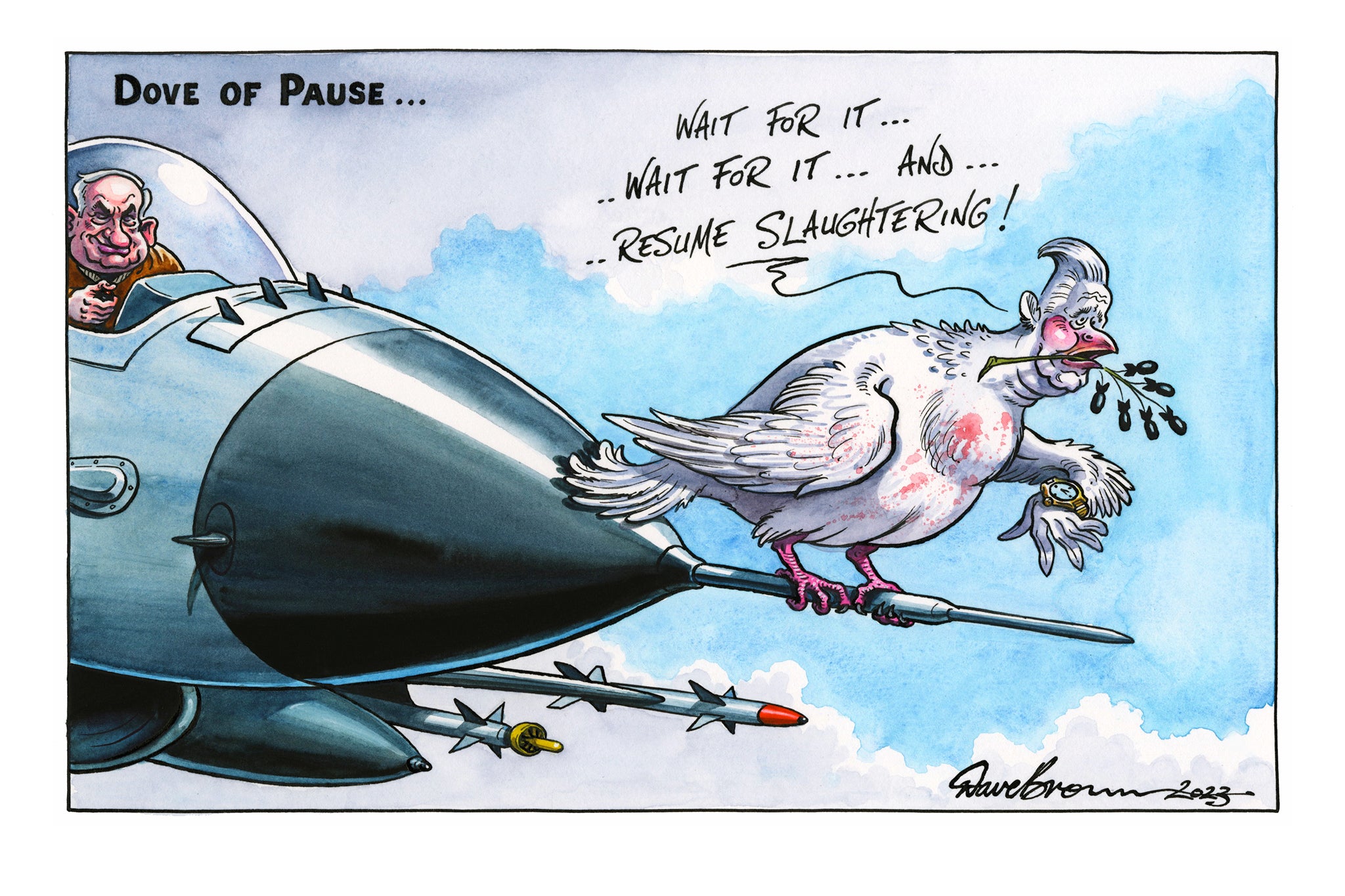No one seeing what has been happening in Israel and Gaza in recent weeks would want anything other than for the fighting to stop. The lives lost and the unspeakable horrors perpetrated in the kibbutzim invaded by Hamas on 7 October have drawn forth more unspeakable horrors visited upon the people of Gaza. The stories are harrowing, the miseries all too real, and there seems no end to them. The pain will last for generations. Wanting to end the suffering of Israeli and Palestinian families now is not an ignoble cause.
So the vast majority of those who call and march for a ceasefire are driven by the noblest of human qualities: that of mercy. Those Labour MPs who voted in the House of Commons for a ceasefire – like those from the Scottish National Party, the Liberal Democrats, and other parties – aren’t antisemites, extremists or Hamas apologists. They simply abhor violence and wish it to end. They deserve respect.
It was very much a “conscience vote” for all sides, and it might have been better if it had been recognised as such, with no whip imposed by the government or opposition parties. Even so, there are also good reasons to believe that Sir Keir Starmer and the Labour leadership actually had the better of the argument, and a more balanced as well as a more realistic approach.
The obvious problem with calling for “all parties to agree to an immediate ceasefire”, as the SNP motion did, is that only one side in this war would be expected to implement it, and a one-sided ceasefire is no ceasefire at all. Without Hamas resolving to end their mission to destroy Israel and indiscriminately kill Jews, such initiatives are simply not going to work. Unlike, say, the IRA – or, indeed, the Palestine Liberation Organisation under the later stages of Yasser Arafat’s leadership – there is currently no prospect of Hamas abandoning violence, even on a temporary basis.
The concept of a “humanitarian ceasefire” is an alien one to them, because they are insincere about caring for the Palestinian people under their control – who are all too often forced to be unwilling human shields – and because they would use any lull in the fighting to gain tactical advantage. An indefinite ceasefire, or armistice, would freeze the conflict where it is, with not even the possibility of any lasting peace to emerge from it. It would not constitute peace in any meaningful sense. Until and unless Hamas renounces violence – or engages in a political process – a ceasefire, as a precursor to peace, remains a chimera.
Though derided for its wordiness and carefully calibrated nuances, the Commons amendment that represents Labour policy is a better prospect for peace than an unconditional call for an unconditional ceasefire. It does implicitly recognise that Israel hasn’t made anything like enough effort to protect civilians, and that as a result innocent lives have been lost unnecessarily – hence the call for longer humanitarian pauses in the fighting. It reaffirms the supremacy of international law, and of the International Criminal Court to deal with war crimes.
Though Israel isn’t a signatory to the relevant conventions – and Hamas would not even consider such a thing – as with any conflict, it is critical that those on the ground and those in charge all know that they may not be able to escape justice for ever. Such crimes include kidnapping, torture, depriving hospitals of medical supplies, using medical facilities as military bases, and shooting or bombing civilians who are fleeing from the fighting.
With the lives of babies being lost because their incubators can no longer be powered, Sir Keir, if he were prime minister, would call on Israel to protect hospitals and lift the siege conditions, allowing food, water, electricity, medicine and fuel into Gaza. He would also demand an end to the expansion of illegal settlements, and to settler violence in the West Bank. And so on. The Labour leadership is not some sort of unconditional ally of Israel, let alone the government of Benjamin Netanyahu, and it does not condone everything the Israeli Defence Forces does.
The approach is not so different from that of the Sunak government, but it feels more compassionate to the plight of the Palestinian people, and even-handed, and thus commends itself better to the British people, whose instinct is a simple heartfelt sympathy for all of their fellow human beings caught up in this horrific war. It conveys an effort by Labour to imagine itself in power – having to play a constructive role in international affairs and to deal with the world as it is, with all its slaughter and ugliness, and not as we would wish it to be.
Saving as many lives as possible, an enduring cessation of fighting as soon as possible, and a credible, diplomatic and political process to deliver the lasting peace of a two-state solution, as Labour argues, is indeed the only realistic way forward.




Join our commenting forum
Join thought-provoking conversations, follow other Independent readers and see their replies
Comments